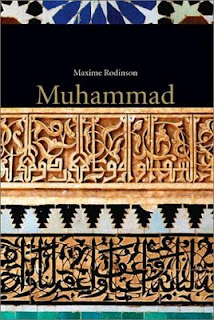Muhammad

This book was dogmatically lazy in its approach. I mean, he slips in a few lines about the unconsious, the Qura'n being a slightly self-serving stream of consiousness recorded on collar bones and camel hide. Was that all it took when he wrote this book? Did you just have to resign big questions of prophecy to the labrynth of the unconscious and all of a sudden it's secular histriography? I understand his attempt to be unbiased with such a subject so profoundly prone to bias, but he makes too big a point of it. He spends the last chapter quoting hysterical hyperboles about the prophet and then goes, "see, I didn't call him Satan or a saint, I have achieved non-partiality". Was he trained as journalist? They too cling to woosy and naive notions of impartiality by subtraction, never addition. His only conclusion is that the prophet was human, all too human. I of course am partial to an ideological prism that I would have liked to see the prophets life to be shown through, but at the very least this book offers a credible chronology. I think it's the best part of the book, and he should have cut out any pretentions at analysis, his freudian guessing games. I guess what I really should have done was cut out the disciplish watered-down middle man and read Montgomery Watt instead.

Comments
I must say, I quite liked Rodinson's book "Europe and the Mystique of Islam," of which there is also a reliable English translation from I.B. Tauris.
Watt's biography, particularly the double-volume version, is indeed a classic. I also like Martin Lings' and F.E. Peters'.